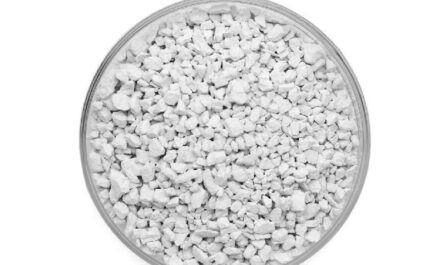The cement industry has seen tremendous growth and innovation over the past few decades. With advancements in technology and new construction needs, specialty cements have emerged to meet unique project requirements. This article explores the various types of specialty cements available today and how they are revolutionizing sectors like oil and gas, mining, infrastructure and more.
What are Specialty Cements?
Specialty Cement refer to customized cement formulations designed for specific end uses or construction applications. They differ from general purpose Portland cements in their composition, properties and performance characteristics. Specialty cements contain additives, fillers or chemical compounds tailored for the intended application and environmental conditions. Some common types include:
– High-Alumina Cements: Containing a high percentage of alumina, these cements are highly heat resistant up to 2500°C. They exhibit high early strength development and are used for fireproofing, refractory constructions and industrial kilns.
– Oil Well Cements: Formulated to withstand harshdownhole conditions like high pressures and temperatures, oil well cements are essential for oil and gas well drilling and completion operations. Slurry properties and rapid setting are key.
– Expansive Cements: Possess hydroscopic properties that cause the material to expand over time on setting. Used for gap-filling and crack repairs in infrastructure like dams, tunnels and bridges to improved durability.
– Colored Cements: Made by adding mineral pigments that impart shades like white, gray, black, red etc. Primarily used for architectural applications and decorative concrete work.
– Microfine Cements: Produced by fine grinding Portland cement clinker to a very small particle size. Have high early strength gain and are suitable for precast concrete, shotcrete and grouting.
Rise of Specialty Cements in Key Industries
Oil & Gas: Specialty cements have become indispensable for well construction activities. Oil well cements must withstand extreme downhole heat and pressure over decades. Advances in additives and accelerators have improved well zonal isolation and integrity.
Mining: Extraction operations demand cements that bond concretes under challenging ground conditions. Rapid setting shrinkage-compensating and expansive cements are improving structural stability of underground excavations.
Infrastructure: Infrastructure projects utilize various specialty formulations like expansive, microfine, white and colored cements for repairs, waterproofing and architectural applications. Advanced cements enhance durability of bridges, tunnels and buildings.
Waste Treatment: Municipal solid waste and industrial wastewater treatment requires acid-resistant, sulfate-resisting and chemical-proof cements. These improve service life of containment structures against corrosive contaminants.
Renewable Energy: Alternative energy projects rely on high performance cements. For example, high-alumina mortars coat turbine blades in wind farms. Concentrated solar plants employ heat-resistant kiln and chimney concretes.
Future Outlook and R&D Focus
It is estimated specialty cement sales will rise at over 4% annually driven by infrastructure development across regions. Cement manufacturers are investing in R&D to cater to evolving project needs through:
– Blended Formulations: Hybrid cements optimizing general purpose and specialty components for balanced workability and properties.
– Nano-engineering: Use of nano-materials as grinding aids or cement admixtures to modify pore structure, reduce permeability and enhance early properties.
– Carbon Capture: Development of belite-rich cements and carbonation techniques offering reduced carbon footprint during cement production cycle.
– 3D Concrete Printing: Tailored cements for additive manufacturing enabling complex precast design in construction with minimal material wastage.
– Digitalization: Advanced cement additives responsive to curing conditions aided by IoT-based real-time data monitoring for quality control.
Overall, specialty cements are revolutionizing frontier sectors with customized formulations addressing unique application challenges. Ongoing innovations ensure these advanced cement types remain a mainstay supporting infrastructure growth worldwide in the decades to come.
*Note:
- Source: CoherentMI, Public sources, Desk research
- We have leveraged AI tools to mine information and compile it



